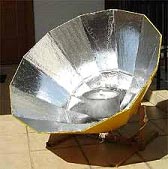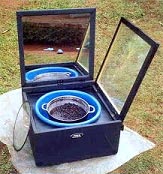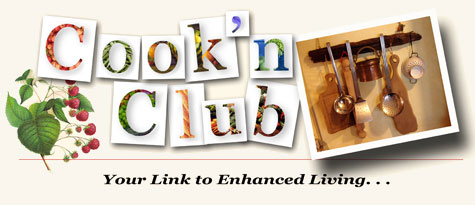Patty's Preparedness Corner: Solar Ovens
By Patty Liston
 Lately I have been doing quite a bit of research on solar ovens. This is something I will either purchase in the future, or have Mr. Joker make for me. I don't know about you, but if we should ever be without electricity for any period of time, I will still want warm food; and baked bread.
Lately I have been doing quite a bit of research on solar ovens. This is something I will either purchase in the future, or have Mr. Joker make for me. I don't know about you, but if we should ever be without electricity for any period of time, I will still want warm food; and baked bread.
A solar cooker or oven uses the energy of the sun to heat foods, bake, and sterilize water. Solar requires no outside, tangible fuel such as wood or coal and costs nothing to operate. This is due to the fact that it is the sun, which is free, that is the fuel
Solar ovens work on the following principles:
 Concentrating sunlight: A reflective mirror of polished glass, or metal is used to concentrate light and heat from the sun into a small cooking area, making the energy more concentrated and increasing its heating power.
Concentrating sunlight: A reflective mirror of polished glass, or metal is used to concentrate light and heat from the sun into a small cooking area, making the energy more concentrated and increasing its heating power.
 Converting light to heat: A black or low reflectivity surface on a food container or the inside of a solar cooker will improve the effectiveness of turning light into heat. Light absorption converts the sun's visible light into heat, substantially improving the effectiveness of the cooker.
Converting light to heat: A black or low reflectivity surface on a food container or the inside of a solar cooker will improve the effectiveness of turning light into heat. Light absorption converts the sun's visible light into heat, substantially improving the effectiveness of the cooker.
 Trapping heat: It is important to reduce convection by isolating the air inside the cooker from the air outside the cooker. A plastic bag or tightly sealed glass cover will trap the hot air inside. This makes it possible to reach similar temperatures on cold and windy days as on hot days.
Trapping heat: It is important to reduce convection by isolating the air inside the cooker from the air outside the cooker. A plastic bag or tightly sealed glass cover will trap the hot air inside. This makes it possible to reach similar temperatures on cold and windy days as on hot days.
Greenhouse effect: Glass transmits visible light but blocks infrared thermal radiation from escaping. This amplifies the heat trapping effect.
How long do things take to cook?
If you have ever done any crock pot or Dutch oven cooking, both which require "slow and low" temperatures, solar cooking won't be much of a stretch. Yes, solar cooking may take a little longer with some foods, but with others the time may be the same as traditional oven cooking. According to one web-site the biggest advantage to solar cooking is that you can leave it to cook on its own without the need to constantly tend it. And, it is almost impossible to burn the food!
Cost of solar cookers?
Should you choose to purchase one of these for emergency preparedness, or just to save on your electric bill, do your homework first. There are dozens of web-sites with information on everything from building your own, to purchasing, to solar oven societies and everything in between. Some web-sites to get you started are: SolarOvens.org, SolarCooking.org, SolarCookers.org, and my favorite, SolarCooker-at-CantinaWest.com. This last web-site has done a comparison of all current solar ovens which you may be interested in reading.
The highest rated oven was the Global Sun Oven which retails for around $264.00. There are many that are cheaper, and there are web-sites that will take you step-by-step to making your own, such as SolarCooking.org/plans.
If you know what you are looking for, (portable, light-weight, inexpensive, heavy enough to withstand winds?), you will find just what you need. I recommend asking around to see if someone you know has a solar oven you can either watch them use, or borrow from them to do your own experimenting.
Whether you get a solar oven for camping, emergency preparedness, or just to have another cooking source, you will not regret the time taken to make one yourself, or purchase from a local dealer. As I said in the beginning, most of us like our food warm; with bread.

